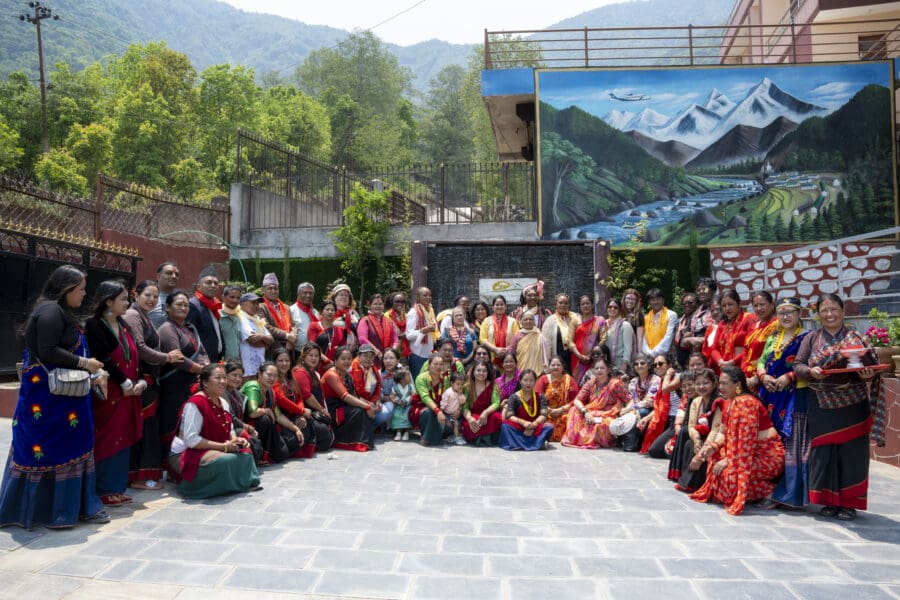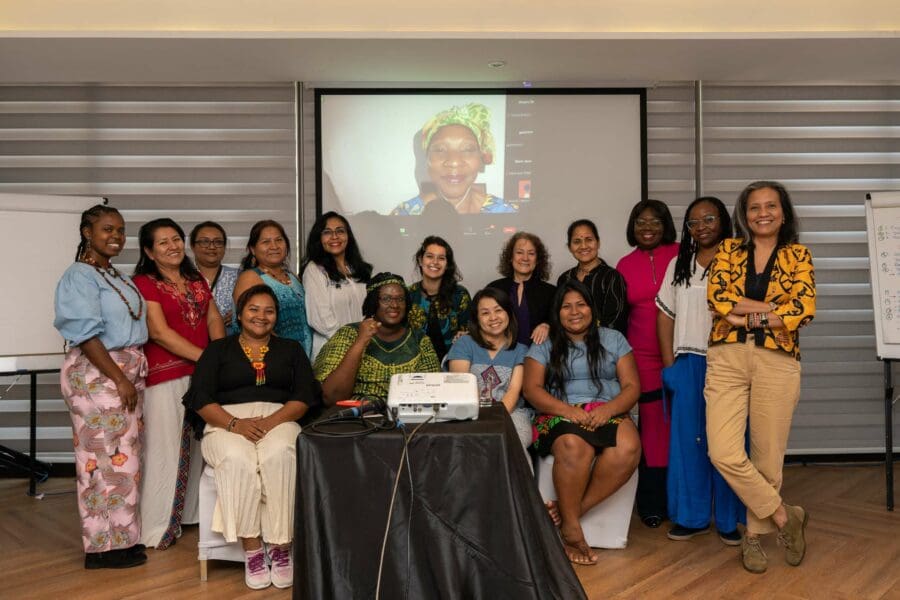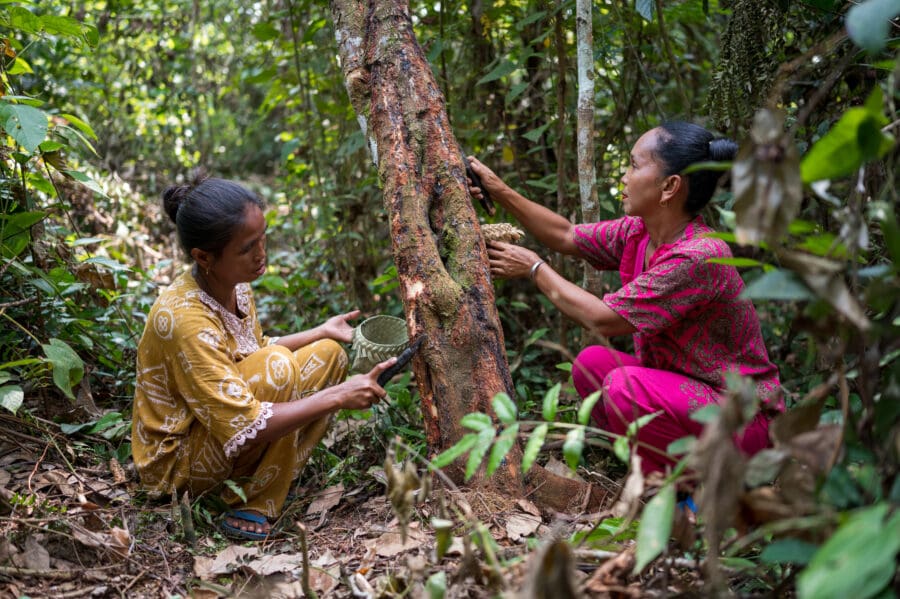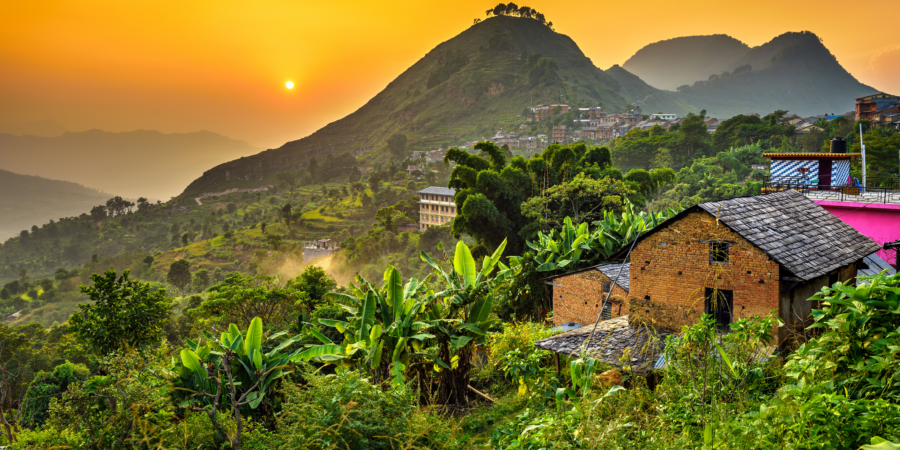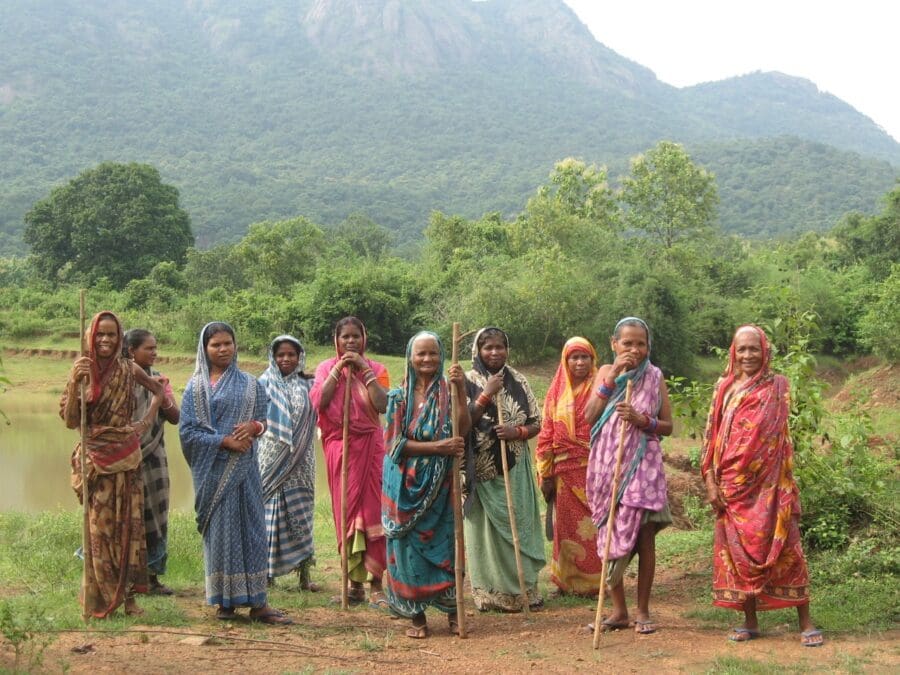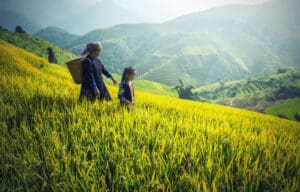This blog post is also available Portuguese and Bahasa Indonesia.
When Kátia Penha, an Afro-descendant woman from the Coordenação Nacional de Articulação de Quilombos (CONAQ) in Brazil, shared what an emotional moment it was for her to cross the Atlantic Ocean due to its history of slavery, she struck a chord with many at the Women in Global South Alliance (WiGSA)’s second strategic meeting in Kathmandu, Nepal, which took place on April 30–May 2, 2024.
Armed with a feeling of sisterhood and common purpose, women leaders from 11 countries across Asia, Africa, and Latin America—representing diverse Indigenous, local community, and Afro-descendant groups—overcame jet lag and time differences to meet in person to discuss strategies on how best to support the women and girls they represent.
“I am grateful to learn about the different experiences of the women of these communities who contribute to conserve their forests…This has allowed us to enrich our wisdom, to be able to take it back to our communities,” said Diana Angulo, a member of the Asociación de Mujeres Afrodescendientes del Norte del Cauca (ASOM) in Colombia.
Formally launched at CoP27 in Egypt in 2022, WiGSA is an alliance of women’s organizations, groups, and associations working to scale up direct climate finance for Indigenous, Afro-descendant, and local community women and girls in developing economies. Facilitated by Rights and Resources Initiative (RRI), WiGSA was created to enhance women’s strategic advocacy at national and international levels and influence government, donors, and the international community to increase and secure direct climate finance for grassroots women’s rights agendas. It held its first strategic meeting in Panama in March 2023.
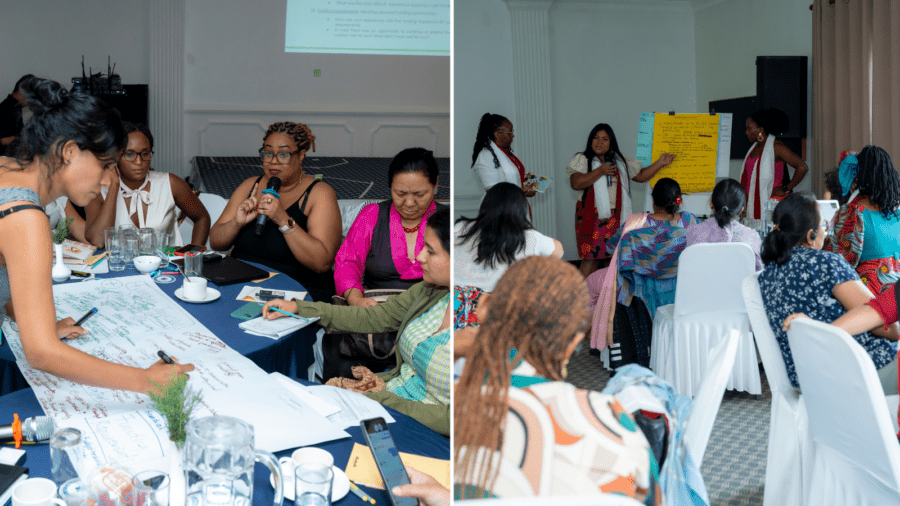
Setting the stage for coordination and advocacy
The annual meeting opened with a warm traditional welcome by Thakur Bhandari, Chairperson of the Federation of Community Forestry Users Nepal (FECOFUN), and introductory remarks by Omaira Bolaños, Director of the Latin America and Gender Justice programs at RRI.
Discussions throughout the three days revolved around:
- Sharing of members’ experiences, challenges, and lessons learned;
- Setting up an interim operational structure for WiGSA;
- Consolidating a membership criteria;
- Scoping for RRI’s preliminary research on direct funding reaching women’s organizations on the ground;
- Exploring how to leverage existing capacities of member organizations to strengthen WiGSA; and
- Creating a roadmap for advocacy in 2024.
Importantly, participants agreed to i) create a WiGSA logo to strengthen its identity for international-level advocacy as a consolidated global network; and ii) elect an interim Steering Committee made up of two members from each region to support decision-making and coordination of the WiGSA’s principles and vision. The elected Steering Committee will also be responsible for revising and finalizing the criteria for WiGSA membership.
Scaling up funding for grassroots women and girls should be a priority
In response to Our Call to Action, published in 2022, and the need for bottom-up data on funding reaching grassroots women’s organizations, RRI introduced the preliminary phase of its new research on this topic. During a scoping discussion, WiGSA members shared experiences from their funding journeys and agreed that they felt supported by networks like RRI in terms of raising awareness about funding opportunities and simplifying application processes. However, women’s organizations that are not part of any network, are not proficient in English, or lack access to reliable internet connectivity continue to face challenges in learning about and accessing these opportunities.
The women also shared that they often find themselves adhering to donor agendas instead of their own organizational goals. Almost all felt that current funding trends tend to put all women in one basket and are not mindful of their diversity, thus contributing to making Indigenous, Afro-descendant, and local community women and girls feel invisible.
“Historical connotations and specific issues like racism and gender discrimination needs to be added to the agenda [of donors], which get overlooked when all women are added to just one category and one definition,” said Sara Omi, President of the Coordinadora de Mujeres Líderes Territoriales de Mesoamérica (CMLTM) in Panama.
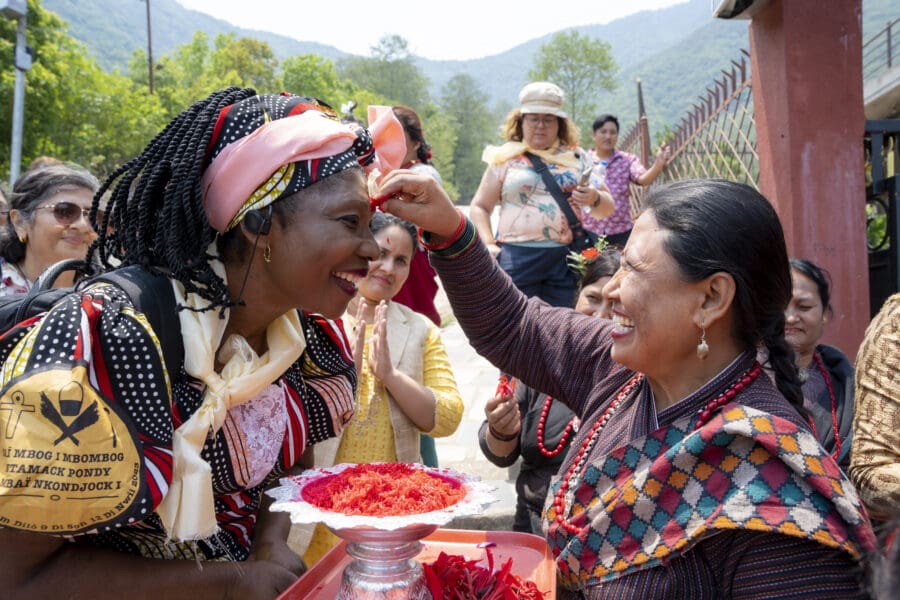
Increasing advocacy on national and international platforms
To maximize WiGSA’s operational capabilities, the members mapped the Alliance’s strengths and capacities at the national and regional levels, which included:
- Identifying priority advocacy themes (climate change, conservation, land defense, leadership formation, and women’s rights);
- Listing current networks and relationships; and
- Noting international spaces where members already have strong representation.
“All [of us] need to work together to advocate for our rights and improve on our knowledge so we can strengthen policies and have more women leaders,” said Chouchouna Losale, member of la Coalition des Femmes Leaders Pour l’Environnement et le Développement Durable (CFLEDD) in the Democratic Republic of the Congo.
They further agreed to strengthen WiGSA’s capacity by communicating its work and success worldwide at national, regional, and international events and spaces, including at CBD CoP16 in Colombia and the UNFCCC CoP29 in Azerbaijan in 2024.
Indigenous and local women on the frontline of conservation in Nepal
On the last day of the meeting, members visited the Champadevi Community Forest User Group in the Kirtipur district of Kathmandu to meet women from three community forest user groups that collectively protect 256 hectares of forest.
They walked through a forest following a cycle path that doubles as an agni-rekha, or boundary line, that prevents forest fires from spreading should they occur, to meet women from the Tamang and Newari Indigenous communities. Due to these women’s conservation strategies, not one forest fire has occurred since they took charge of its protection. Their conservation practices and years of collective activism have led to increased visibility and recognition for their efforts.
The visit ended with a solidarity “WiGSA!” chant, a traditional Newari meal, and singing and dancing to traditional Nepali music before returning to Kathmandu.
“From the moment we wake up in the morning to the time we sleep, the forest and us share a unique and strong bond,” said Nita Basnet, Chairperson of the Champadevi Community Forest User Group in Nepal.
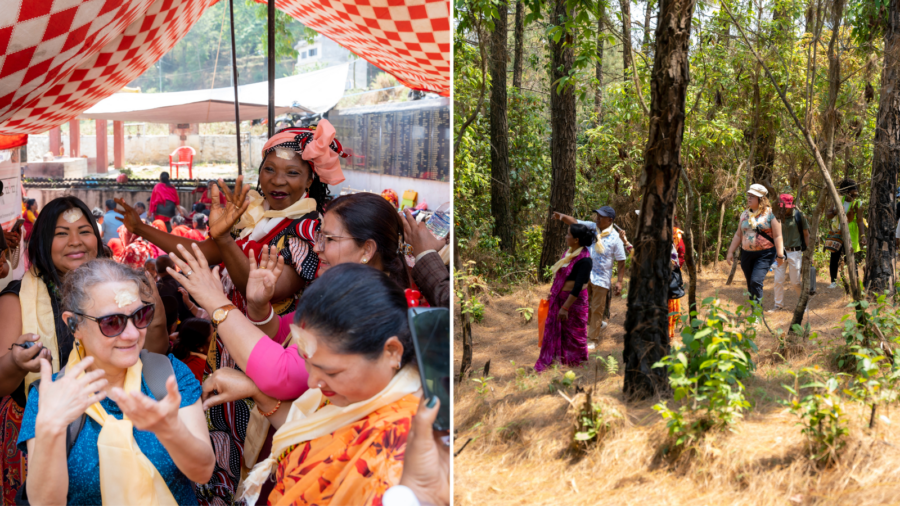
What’s next for WiGSA?
In April 2024, RRI and Rainforest Foundation Norway launched the Path to Scale Dashboard, a new open-source online tool that gives easy access to donor funding data for Indigenous Peoples’, Afro-descendant Peoples’, and local communities’ territorial rights and forest guardianship. An analysis of the dashboard’s data and main funding trends since 2020 found that while donor funding was up 36 percent from the last four years, there is still no systematic change in direct funding to rightsholders’ organizations, including those led by women.
Despite Indigenous, Afro-descendant, and local community women being at the heart of many development and climate change efforts, women-led organizations continue to be left behind.
“Indigenous women have a big role to play in conserving forests and territories. It is something that we have been doing for generations without many resources,” said Nimi Sherpa Chairperson of the National Indigenous Women’s Federation (NIWF) in Nepal. Additional resources to support bringing WiGSA members together more frequently would improve Indigenous, Afro-descendant, and local community’s ability to organize strongly and effectively.
In response to this and Our Call to Action, RRI and WiGSA have initiated a scoping analysis as a preliminary step for a future new baseline analysis to assess the true level and types of funding actually reaching grassroots women’s organizations in the Global South. The study will identify how funding is reaching these organizations working at the intersection of tenure rights, gender justice, and conservation practices and climate change. This process is already underway: At the meeting, participants began scoping funding journeys (both positive and negative experiences), including identifying barriers to funding as well as opportunities.
Meanwhile, WiGSA members will continue to add their voices to national, regional, and international events on climate and conservation in 2024 and beyond, including the UN CBD CoP16 in Colombia and the UNFCCC CoP29 in Azerbaijan.
